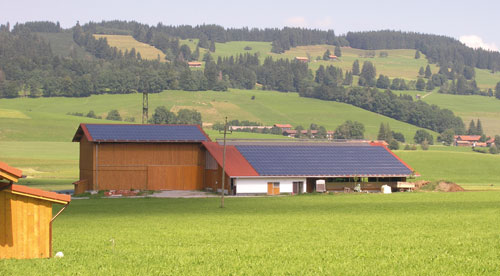Not sure how many SolarQuotes readers caught this fascinating Radio National discussion during the week. Amongst a number of issues raised, it gave a number of insights into the problems facing how Australian governments deal with solar power incentives.
Hosted by Waleed Aly with guests Matthew Wright, executive director of the renewable energy action group Beyond Zero Emissions, and Tony Wood, energy program director at the Grattan Institute, the discussion also included a brief cameo appearance by phone from the ACT’s minister for sustainable development, Simon Corbell.
One of the key discussions was how to implement an effective feed-in tariff, a factor that seems to elude state and federal governments here in Australia almost every time.
Matthew Wright made the key point that incentives for solar in countries like Germany work in a different form which helps give fledgling solar companies the boost they need early on their development cycle, while providing a time frame during which the support is given before being taken away.
Here’s the quote from the Radio National interview.
“If that technology shows that it can actually run down the cost curve, towards the cost of fossil fuels, they say, alright, incentivise it, at day one, at a certain price. Then over a ten year period, or a five year period, it has to get itself weaned off those incentives. Just like a child, that gets weaned off its parents, and goes off and finds its own job,” said Wright.
Only proven technologies than can prove they can compete with fossil fuels are given the go ahead, he continued.
“They have only chosen technologies that can prove, to a technical panel, that they can go down the cost curve. So solar and wind, are completely that. For years and years, they have been paying incentives, and the technologies have been getting cheaper and cheaper and cheaper, and you can see that through the German scheme, which is always paying less every year, for any new installs of those technologies.”
It doesn’t sound like rocket science does it? I stand to be corrected but isn’t this a far superior way of providing government support and incentive than our current “boom and bust” cycle? This is mostly due to the fact that solar incentives such as feed-in tariffs are subject to changes at the drop of a hat — or change in government at election time — thereby robbing solar operators and consumers of any certainty.
The removal of the incentives, planned for 2017, looks like it will come in under the time with subsidies removed by around 2015, according to the Beyond Zero chief.
ACT minister Simon Corbell, minister for sustainable development in one of the few regions where feed-in tariffs appear to have worked, told the panel his government had put in place an agreement to support 240 MW of renewable energy through a large scale feed-in tariff over a number of years.
Sounds almost German doesn’t it?
For the full discussion download the audio at the Radio National website here.


 RSS - Posts
RSS - Posts



Speak Your Mind